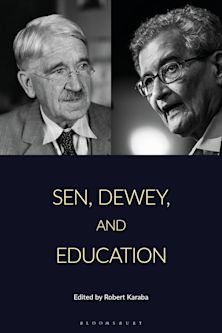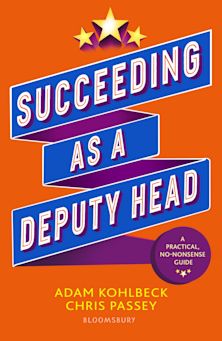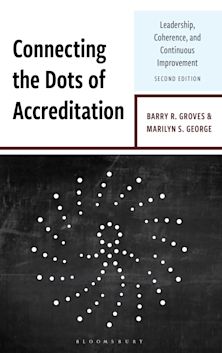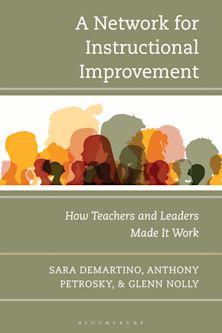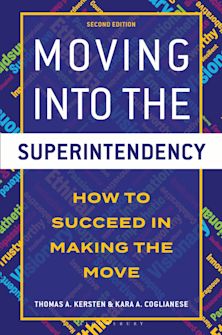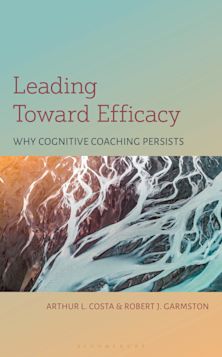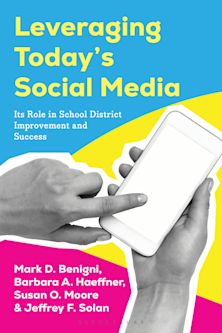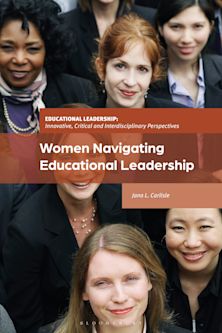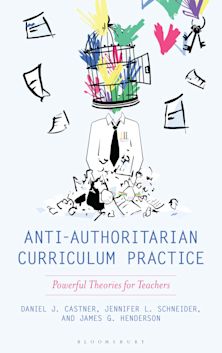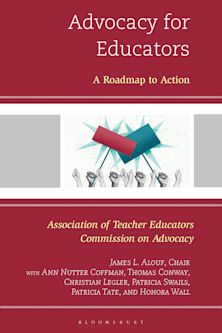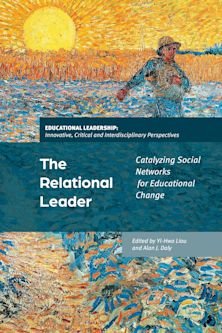- Home
- ACADEMIC
- Education
- Leadership and Management
- The Leadership Identity Journey
The Leadership Identity Journey
An Artful Reflection
The Leadership Identity Journey
An Artful Reflection
This product is usually dispatched within 3 days
- Delivery and returns info
-
Free CA delivery on orders $40 or over
You must sign in to add this item to your wishlist. Please sign in or create an account
Description
The Leadership Identity Journey takes readers on a breathtaking, all-consuming, transformative journey. The invitation is to think of your life as a journey that follows a mythic path. By doing so, new possibilities emerge for thinking about leadership identity and preparation, as well as artistic research and the education field. The perspectives described in this book are supported by school leaders’ insights into powerful iconic photographs relative to the five mythic life phases: the human condition, trials in life, human triumph, human transformation, and human crossing, with the addition of leadership as a dimension of the life-journey model. The authors conducted their study using selected photographs framed by the universal mythic framework inspired by mythologist Joseph Campbell.
Table of Contents
Foreword: Confessions of a (Reforming) Structural-Functionalist-Karen Seashore Louis
Acknowledgments
Introduction
Chapter 1: Sketching the Universal Leadership Journey
Chapter 2: Witnessing Educational Leaders on the Mythic Journey
Chapter 3: Seeing, Believing, and Constructing Meaning
Chapter 4: Describing Relevance for Leadership Practice
Chapter 5: Revealing Relevance for Practice, Preparation, and Research
Coda
References
About the Authors
Product details
| Published | Jun 05 2014 |
|---|---|
| Format | Paperback |
| Edition | 1st |
| Extent | 152 |
| ISBN | 9781475808582 |
| Imprint | Rowman & Littlefield |
| Dimensions | 229 x 149 mm |
| Publisher | Bloomsbury Publishing |
About the contributors
Reviews
-
Whether you’re a veteran administrator, or a younger person only contemplating getting into academic leadership, you’ll want to read and reflect on this book. You’ll be helped to know what to expect as typical for someone who accepted the leadership call. You’ll know to watch for and learn from your mentors. You’ll become aware of the universality of significant leadership-journey challenges. You’ll be better prepared for setbacks and wounds to your self-esteem. You’ll be inspired to both accept and surmount challenges and to spot opportunities to provide assistance and comfort to others. Best of all, you’ll be better equipped to enjoy the journey.
The Department Chair
-
When people take the time to see and write their leadership experience as a journey, it is more than a moving experience—it can increase their emotional intelligence and enhance their personal and professional capacity. This book is based on research but it is very practical. It can and should be used. Personally and professionally, I admire it. The research potential of the original materials presented in this book are deserving of further exploration. The potential for the approach that Mullen, English, and Kealy describe could also significantly enhance team-building and development in groups where more knowledge of each other’s non-cognitive skills may enhance the capacity to be creative and open.
Karen Seashore Louis, professor emeritus, Beck Chair of Ideas in Education, Department of Organizational Leadership, Policy, and Development, University of Minnesota
-
Mullen, English, and Kealy’s powerful book is a strong reminder that leadership is very much a human-centered enterprise. The Leadership Identity Journey: An Artful Exploration is an absorbing scholarly book that draws on Joseph Campbell’s universal mythology to understand leadership as a journey. Based on interviews with public school leaders, the researchers use visual data to prompt the emotional and subjective sides of leaders’ inner worlds. The result is a refreshing and novel approach to leadership studies that is likely to be of great interest to both practitioner leaders and those charged with leadership preparation. This creative work has my highest commendation.
Lisa C. Ehrich, associate professor of educational leadership, School of Cultural and Professional Learning, Faculty of Education, Queensland University of Technology













